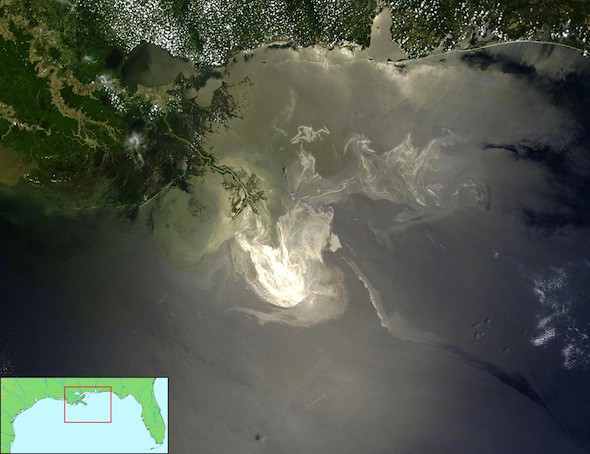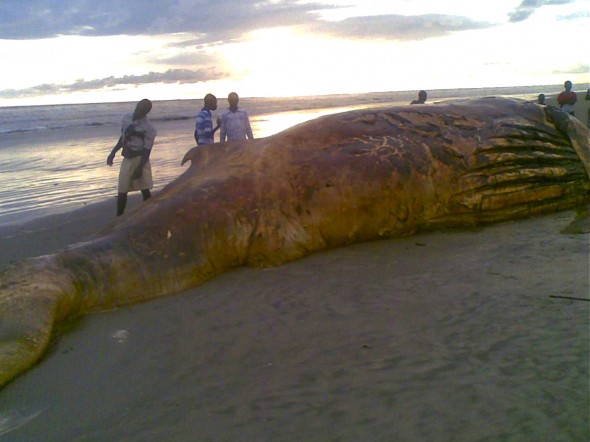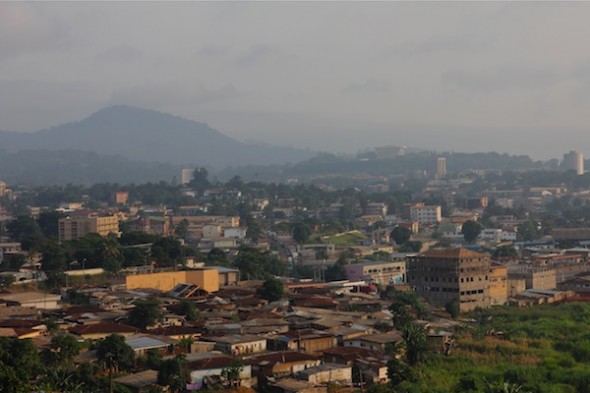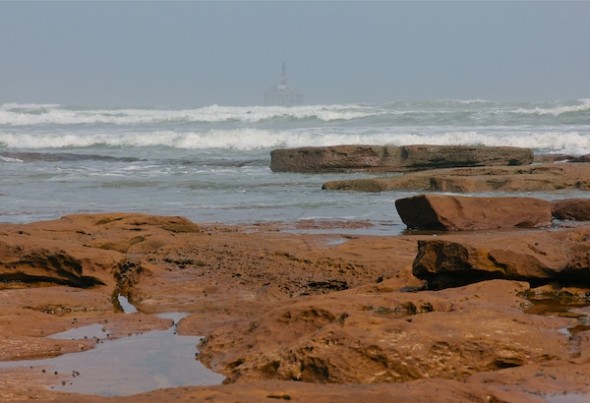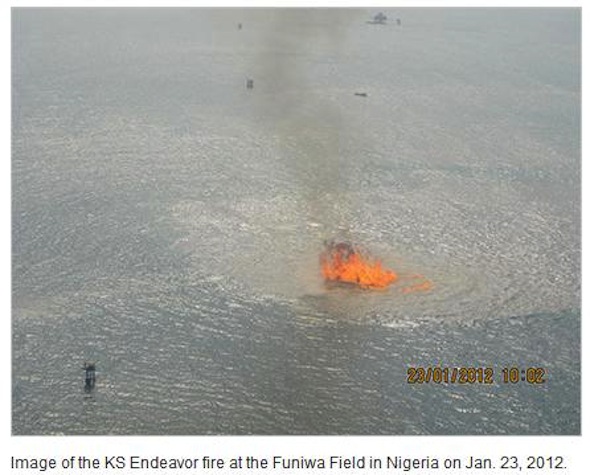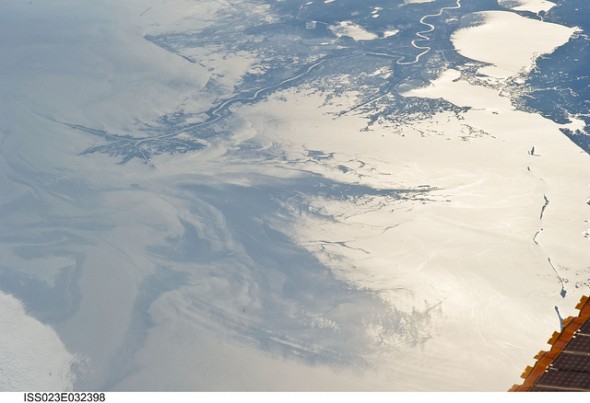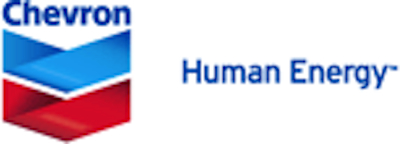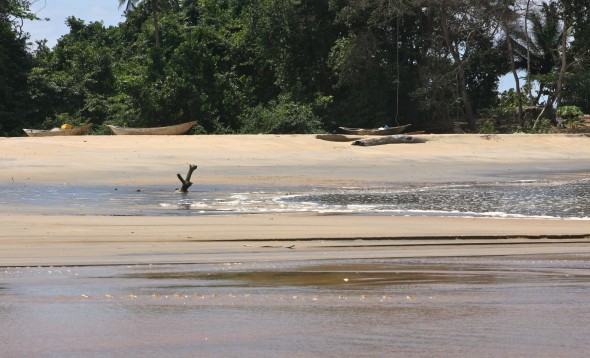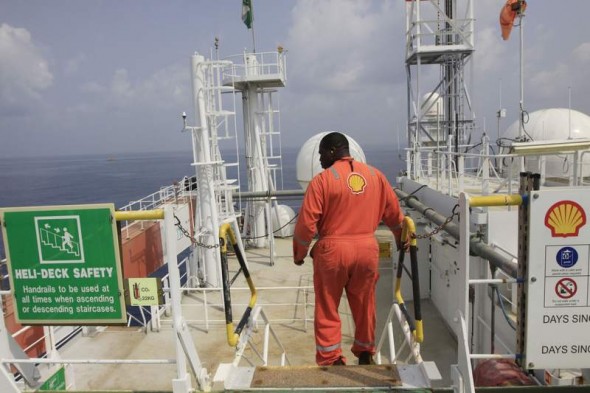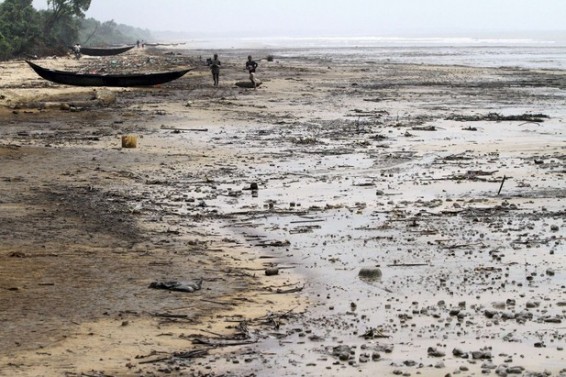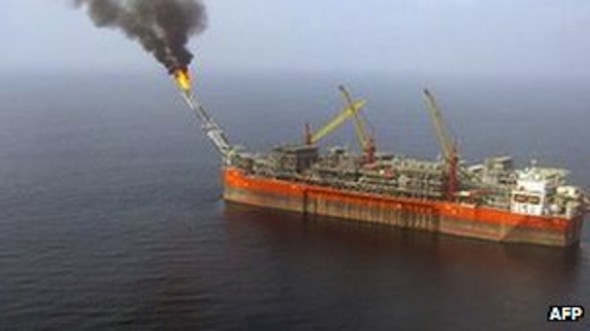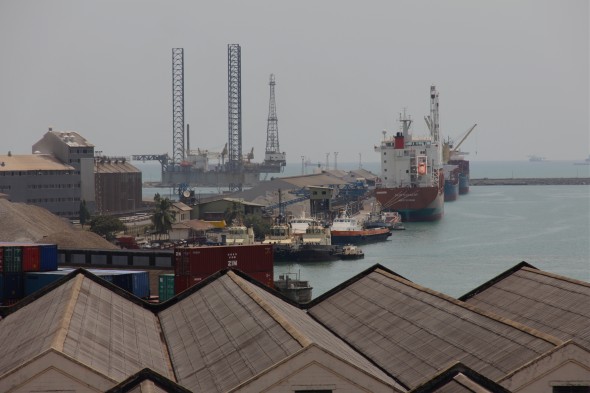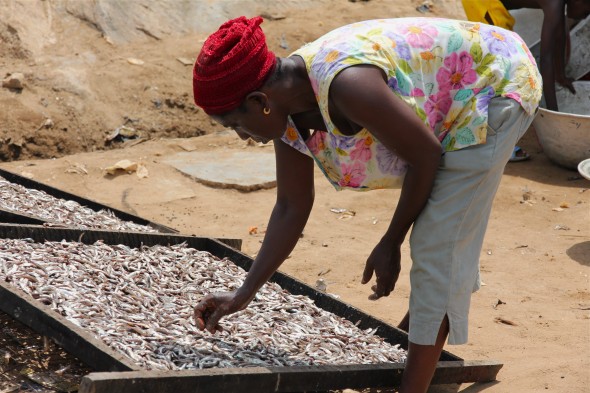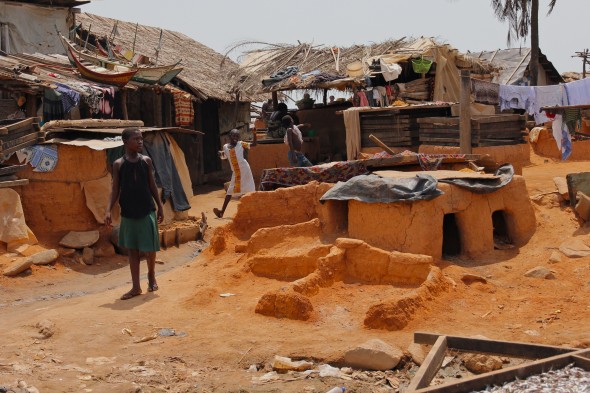Deepwater Horizon spill: Five years later, endless problems
Five years have passed since BP’s Macondo well exploded leading to the largest offshore spill in U.S. history. The story of the Deepwater Horizon spill no longer draws much media attention, but the problems have not gone away.
Corexit and a never-ending supply of oil
Al Jazeera English is one of the few news organizations in the U.S. keeping the Deepwater Horizon story alive. While others have forgotten the disaster, Al Jazeera has broadcast a number of stories on the ongoing environmental problems in the Gulf of Mexico. The mess that oil made recently aired on Inside Story Americas.
The Huffington Post also featured an article by David Kirby on the Corexit scandal, Corexit, Oil Dispersant Used By BP, Is Destroying Gulf Marine Life, Scientists Say.
BP’s negligence prior to the Deepwater Horizon has been reported extensively. But had this accident occurred on land it could have been contained much more quickly. Today oil companies are after oil that’s harder and more dangerous to drill. Disaster response technology has not kept up and one can only when the next disaster will occur. A new article published in The Atlantic and Mother Jones, What if we never run out of oil?, describes the latest efforts to get at frozen gas miles under the ocean surface. A miracle — and a nightmare — writes author, Charles Mann. Indeed.
Offshore drilling, noise and whale deaths: is there a connection?
While working in Ghana last year, I learned that an unusually high number of dead whales had washed ashore since the start of oil drilling. I talked to several local environmentalists who feared the deaths were connected to the country’s oil industry but had no resources to investigate. Without offering any details or study results, the Ghana EPA declared the whale deaths were unrelated to the oil industry.
Although there had been no significant oil spills in Ghana, another form of pollution, which may have played a role in the whale deaths, was ongoing yet invisible: Noise pollution. Shipping and drilling are two known causes of significant underwater noise. Noise pollution — especially when it’s below the ocean surface — doesn’t get much attention. But as a recent article in the New York Times points out, the world’s oceans are increasingly noisy and the impact on marine life, mammals in particular, may be devastating:
Yaounde landing…
I haven’t had a chance to post anything for a few weeks. I’ve just arrived in Yaounde, Cameroon, and hope to have more time to get information up in the coming days. I’m starting some new work and will look forward to writing about it.
In the meantime, I want to provide links to a few articles up at Ghana Oil Watch. As the months go by, the Jubilee Field projected 120,000 b.p.d. output level is looking increasingly like wishful thinking. It has been hard to get clear information on why — exactly — production is so low. Tullow and its partners have repeatedly cited technical issues as the cause, yet now that those issues are supposedly resolved, why haven’t production levels increased?
Lloyd’s of London to Arctic would-be drillers: Slow down
The Guardian is reporting that Lloyd’s of London, the world’s largest insurance market, has voiced concern about proposed offshore Arctic drilling. The company says clean-up of any spill would present, “multiple obstacles, which together constitute a unique and hard-to-manage risk.”
Reading the article, several paragraphs jumped out because they could also be useful for policy makers in Africa, many of whom are jumping on the drilling bandwagon without having adequate safety and emergency response systems in place:
Richard Ward, Lloyd’s chief executive, urged companies not to “rush in [but instead to] step back and think carefully about the consequences of that action” before research was carried out and the right safety measures put in place….
Other than the direct release of pollutants… there are multiple ways in which ecosystems could be disturbed, such as the construction of pipelines and roads, noise pollution from offshore drilling, seismic survey activity or additional maritime traffic….
Cameroon quietly ups oil production
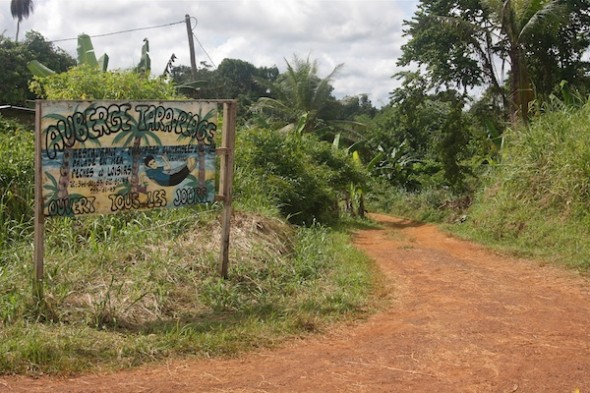
Kribi, Cameroon, where sleepy beach resorts will soon give way to a major port and gas plant. Photo by Christiane Badgley
Cameroon’s oil industry doesn’t get much international attention these days, but like its neighbors the country has seen growing offshore activity over the last few years. After years of declining output, the country’s production levels are once again on the rise.
The Scottish company, Bowleven, has been drilling in Cameroon for several years now and its hits and misses usually get some coverage in the business press. Kosmos Energy, Perenco, Shell, ExxonMobil and Noble Energy, among others, are also actively drilling in the country.
Although Cameroon’s oil production levels are close to those of Ghana, there’s no talk of transparent revenue management in Cameroon. The country recently had its EITI candidacy status renewed for another 18 months. It should be noted that the country was already “close to compliant” in 2010 and hasn’t made much progress since. According to EITI rules, “If Cameroon does not achieve Compliant status by 15 August 2013, it will be de-listed.”
Chevron says Nigerian rig fire extinguished
After suggesting that the rig fire off the coast of Nigeria could burn “for months,” Chevron has announced that it is no longer burning.
Apparently the fire stopped burning by itself several days ago, as gas was no longer flowing from the well. I have read differing accounts about why the gas stopped leaking, but at this point Chevron can’t guarantee that this is the end of the story. The company is continuing with relief well drilling.
There is still no information available on environmental damage or compensation for fishermen and villagers who say that both their livelihoods and their health have suffered as a result of the 45+ day fire. For more than one month now, there have been news reports of tests to determine contamination levels. But we’ve yet to see any results.
BP: A settlement and many unanswered questions
For those who believed that a trial would be the best way to hold BP accountable for the shortcuts and errors that resulted in the deadly Deepwater Horizon disaster, the news out of New Orleans last night was not good.
BP has reached an agreement and will settle the case brought against it by companies and individuals whose livelihoods were impacted by the Gulf oil spill.
Judge Carl J. Barbier of Federal District Court in New Orleans issued an order late Friday night stating that the two sides “have reached an agreement on the terms of a proposed class settlement which will be submitted to the court,” and announcing that the first phase of the trial, scheduled to begin on Monday, is adjourned indefinitely while the next steps are worked out.
Chevron’s Endeavour rig: the story changes, but the fire still burns
Al Jazeera report February 4, 2012
First there’s news of a rig fire, which turns out to be much more than just a fire. In fact, it’s an exploratory gas well burning uncontrollably. That’s called a blowout and it’s what happened to the Macondo well in the Gulf of Mexico. The well spews oil or gas until it can be “killed.”
Chevron, the owner of the Endeavour rig, does not use the term blowout. But the company did admit that drilling a relief well would be necessary to cut off the flow of gas. A few days ago, company officials announced that drilling of the relief well had started.
Now, we have an update from the BBC. Speaking to a BBC reporter, Chevron spokesman Lloyd Avram has acknowledged that, “A gas-fuelled fire, with flames as high as 5 meters, may burn for months in waters off the Niger Delta in south-east Nigeria.”
Nigeria: Chevron starts drilling offshore relief well
For more than one month, the Chevron Funiwa 1A gas well has been burning uncontrollably off the coast of Nigeria.
I posted some information about this rig fire, caused by an apparent well blowout on January 16th. The fire claimed the lives of two rig workers. On January 26th, Chevron announced that the company was, “finalizing plans to commence drilling two relief wells.”
Ghana’s fishing communities fear oil spills…
…And rightly so.
Yesterday I wrote that Ghana has been producing oil from its offshore Jubilee field since December 2010, yet still lacks monitoring vessels, equipment and personnel.
Something else that’s missing: funds to compensate fishing communities in the event of a spill.
This video recounts the fears of the residents of Abuesi, a small fishing community near Sekondi-Takorad (a.k.a. “Oil City”). Travel up and down the coast, and you’ll hear the same fears echoed again and again.
What will happen when a village that is entirely dependent on its fishing operations for its survival is shut down by an oil spill?
Is Ghana really ready for oil?
Is Ghana ready for an oil disaster? It’s difficult to find officials who want to talk about the subject. Most prefer saying things like, “We learned many lessons from the Deepwater Horizon spill,” and, “It can’t happen here.” Truth is (and everyone knows this), a disaster can strike anywhere.
Ghana has been producing oil from its offshore Jubilee field since December 2010, yet still lacks monitoring vessels, equipment and personnel. The country has an “oil spill response plan” — on paper — but could Ghana actually respond to and deal with a significant oil spill?
This video and a new article published today on iwatch news explore the state of Ghana’s environmental regulation and emergency preparedness.
Bonga spill investigation ordered
The Nigerian government has mandated an investigation into the cause and effect of the Bonga oil spill on December 20th.
An NGO has also raised questions regarding Shell’s use of dispersants without any monitoring or assessment plan.
Fishermen are blaming the spill for a dwindling fish supply and rising prices.
Meanwhile, Shell is moving ahead with its plans to drill in the Arctic waters off Alaska.
“The polluter is strangely in charge of the regulators.”
That’s a perfect line to sum up the oil industry in Nigeria.
Day two of the general strike and ongoing sectarian violence have pushed news of the Bonga field oil spill to the back pages, but in the end it’s all about oil. Whether it’s pollution on the beach, corruption or violence, the source of Nigeria’s malaise is oil.
But back to that line, “The polluter is strangely in charge of the regulators.” That’s from an editorial that appeared on January 9th in the Nigerian Compass.
Bonga field: Back to business as usual
LAGOS, Nigeria — Royal Dutch Shell PLC’s Nigerian subsidiary says it has resumed production at a 200,000 barrel-per-day oil field after containing the worst Nigeria offshore spill in more than a decade.
Spokesman Tony Okonedo said in a statement Thursday that steps had first been taken to ensure it was safe to restart production at the Bonga deep-water oil field.
That’s the word from the Associated Press. Reuters adds a bit more information:
Nigerian villagers say oil from the spill at Bonga, 120 km offshore, had washed up on the coast, blackening stretches of it and killing fish, but Shell has denied that the oil could be from the Bonga facility.
2012 off to a rocky start in the Gulf of Guinea
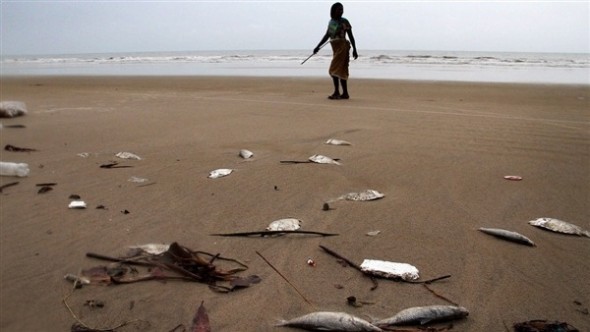
A woman walks past some of the hundreds of dead fish believed to have been killed as a result of the recent oil spill off the coast of Nigeria. Photo: George Esiri/EPA
The 40,000 barrel (1.68 million gallon) oil spill that occured sometime around December 20th at Shell’s Bonga facility 120 km off the coast of Nigeria has not been good for the new year.
Well, I should qualify: it hasn’t been good for Nigerians. Nigeria’s largest offshore spill (as opposed to onshore, where larger spills have certainly occurred) in more than a decade hasn’t made a dent in Shell’s stock price and is only getting minimal media coverage outside the country.
As I wrote a few days ago, Shell announced that clean up crews had “contained” the spill before it hit land. According to the company, clean-up crews, dispersants and nature worked together to prevent the spill from arriving onshore. At the same time Shell reported that clean-up crews had discovered a second spill — one that reached land — having nothing to do with the Bonga oil leak.
Shell continues to deny that the onshore mess has anything to do with the Bonga field spill, but many are doubting those claims. The amount of oil that has washed ashore looks substantial (Euronews has produced a short video report that includes villagers showing barrels of oil they’ve shoveled up: Coastal pollution fears after Nigeria oil spill). Could this really be the result of a passing tanker spill/dump? Shell said the company would analyze the oil on the beach to prove it has nothing to do with the Bonga facility.
Did someone say oil spill?
As the spill offshore Nigeria works its way to shore, the lack of information about what is actually happening is depressingly familiar.
Shell reports that less than 40,000 barrels were spilled (at 42 gallons per barrel, that’s something like 1.6 million gallons), but there’s no way to verify that information. Shell posted a photo of the source of the spill, a rupture in the line that carries oil from the offshore storage facility (the FPSO) to oil tankers.
Oil spill offshore Nigeria
News from Nigeria:
Nigeria in Race to Limit Shell Oil Spill
Lagos – Authorities rushed to prevent one of Nigeria’s worst recent oil spills from reaching the West African nation’s shoreline on Thursday, with production from a major Shell field also shut due to the leak.
Shell, which said the leak has been stopped, has estimated that less than 40 000 barrels of crude have spilled into the sea and was deploying ships with dispersants to attack the slick. Planes were also being mobilised.
It was Nigeria’s worst offshore spill since a 1998 Mobil incident, officials said, though onshore leaks have been estimated at levels far worse since that time in the oil-producing Niger Delta.
What Happened at the Macondo Well?
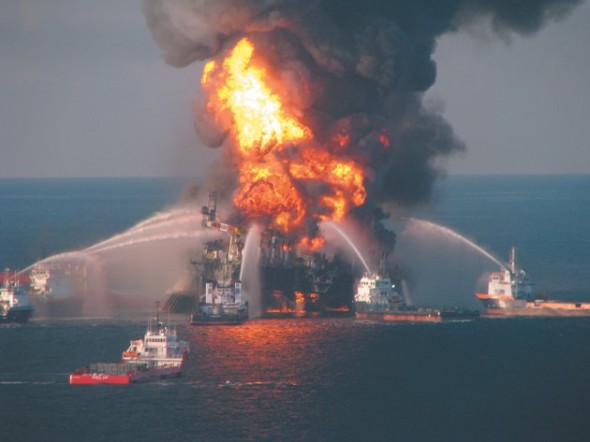
Fireboat response crews battling the blazing remnants of the Deepwater Horizon, the offshore drilling rig owned by Transocean that exploded when BP’s Macondo oil well ruptured in the Gulf of Mexico, April 21, 2010. Photo: U.S. Coast Guard
Journalist and author Peter Maass has reviewed four recently published books on the Deepwater Horizon disaster. Maass, whose book Crude World: The Violent Twilight of Oil is a searing indictment of the global oil industry, knows only too well that BP is hardly the bad apple. As he says in the review, “BP recklessly cut corners whenever it could, but so did Transocean, and so did—does—the rest of the fossil fuel industry.”
Understanding the Deepwater Horizon disaster is important then, because of what happened of course, but also because this can happen again, anywhere.
Union Man: Where are the jobs?
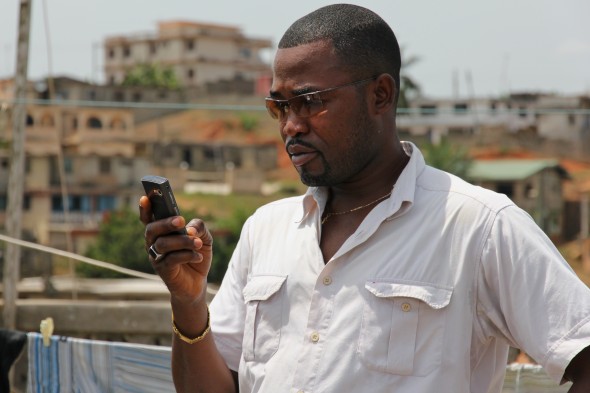
Francis Sallah, Regional Industrial Relations Officer, Ghana Trades Union Congress. Photo by Christiane Badgley
Nothing seems to capture the public imagination like oil. The real impact of the oil industry on local communities in Africa is in plain sight from Nigeria to Chad to Equatorial Guinea and beyond, but this hardly dampens public enthusiasm for the black gold.
In Ghana, things were no different. When Ghanaians found out there was oil off their coast, a sense of excitement spread across the country. Optimistic and at times unrealistic statements from various company officials and ministries added to expectations. Continue reading . . .
Offshore drilling: “systemic” safety problems?
How safe are Ghana’s offshore oil drilling operations? According to officials I’ve interviewed here so far, Ghana’s oil operations are safe, secure and pose no particular threats to people or the environment. An EPA official in Takoradi assured me that the waters off the coast of Ghana are much calmer than those in the Gulf of Mexico. He also reminded me that the Deepwater Horizon spill was due to human error and that Ghana is constantly verifying every aspect of the oil operations in order to avoid any mistakes. Spin. Of course. After all, what are officials going to tell me? That they’re worried? Continue reading . . .
Abuesi
Imagine a place where fishing is the only game in town. Then imagine just how nervous the residents must be about offshore oil drilling.
The place is Abuesi, a small town at the water’s edge about 30 minutes down the road from Takoradi.
Thinking about offshore drilling
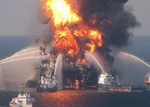 This morning I read Investigation into BP Spill Reveals Incompetence, Greed, Complacency and Cynicism — It’s Time for a New Energy Policy, by Michael Brune, Executive Director of the Sierra Club. The brief article discusses, Deep Water: The Gulf Oil Disaster and the Future of Offshore Drilling, the final report from the Obama-appointed investigative commission. Although the report and its recommendations concern the U.S., it is easy to see the significance for Africa, where oil offshore drilling is on the rise.
This morning I read Investigation into BP Spill Reveals Incompetence, Greed, Complacency and Cynicism — It’s Time for a New Energy Policy, by Michael Brune, Executive Director of the Sierra Club. The brief article discusses, Deep Water: The Gulf Oil Disaster and the Future of Offshore Drilling, the final report from the Obama-appointed investigative commission. Although the report and its recommendations concern the U.S., it is easy to see the significance for Africa, where oil offshore drilling is on the rise.
I’ve recently posted information about the Scottish company, Bowleven, and its new oil finds off the coast of Cameroon. This is no small story: exploration over the past few months indicates that these discoveries are even more promising than initially thought. And Cameroon is not alone. There are new finds in Nigeria. Ghana is now pumping offshore oil. From Sierra Leone to Angola, the entire Gulf of Guinea region is poised for major, new offshore development. Africa, and in particular the Gulf of Guinea, is one of the new oil “hot spots” attracting both the major oil companies (American, European, Chinese and Brazilian) and the “minnows” or “wildcats,” the smaller, independent companies who used to “explore-discover-sell,” but are now getting in on the drilling action, too. Spend a few minutes reading the trade papers and you’ll quickly get a sense that this is the new Wild West.
There’s money, and lots of it, to be made offshore. I remember reading once that the oil business in Equatorial Guinea worked well for the Americans. With all the activity offshore, work crews could be helicoptered in every few weeks. No need to get too close to the abysmal situation on the ground in the country. Oil money fuels the corruption, repression, income inequality and political instability in the country, but the offshore drilling continues without a hitch.
So far, at least. What we hear little about are the environmental risks and dangerous lack of regulation, oversight and response capability that are unfortunately the norm for much of the offshore drilling in the Gulf of Guinea. As I mentioned in a post several weeks ago, I’m looking into the oil spill response plans of Cameroon and other countries in the region. I have yet to see anything reassuring.
More to follow.
The Yes Men Inspire Nigerian Activists
The Yes Lab has helped Nigerian activists pull off a successful hoax. Here’s the story:
Shell Flummoxed by Fakers
Company flummoxes back; activist group takes responsibility
The Hague – Hours before Shell’s annual general shareholder meeting on Tuesday, and not long after BP’s oil rig catastrophe, millions of people around the world received press releases announcing that Shell would implement a “comprehensive remediation plan” for the oil-soaked Niger Delta. The plan included an immediate halt to dangerous offshore drilling, the end of health-damaging gas flaring, and reparations for the human damage caused over the decades of Shell’s involvement.
The “good news” was fiction, created by an ad-hoc activist group called the Nigerian Justice League to generate pressure on Shell to withdraw from, and remediate, the Niger Delta. According to the activists, Shell’s operations in the Delta have helped transform that area into the world’s most polluted ecosystem, which has in turn resulted in a human rights catastrophe.
(The NJL developed the project as part of the Yes Lab, a workshop run by a group called “The Yes Men” to share their experiences and facilitate the projects of others. The Yes Lab is in the midst of a fundraising drive.)
“Shell, Chevron, and the others are perpetrating a massive, life-threatening hoax by claiming that they can’t quickly stop their gas flaring, reduce their oil spills, and clean up their mess in the Niger Delta,” said Chris Francis of the Nigerian Justice League. “Our press release revealed the truth: that there is a decent way forward, instead of the continual deceit we get from them.”
Shell’s public relations staff quickly and energetically moved to contain the fallout from the fake release. On Tuesday, Shell attempted to eliminate the Justice League’s spoof Shell website by complaining that it was a “phishing scheme” to the upstream internet service provider. Shell then sent a threatening legal letter to the Danish internet provider hosting the site.
In a related story, the Financial Times (a blog of which, incidentally, was duped by the fake release) refused to run a hard-hitting advertisement, created and paid for by Amnesty International, that called for action against Shell for its Niger Delta legacy. Like the fake release, the ad was timed to coincide with Shell’s May 18 AGM.
“For now, Shell’s legal threats are bearing ripe fruit,” said Esmée de la Parra of the Nigerian Justice League. “But they can’t keep blustering their way to destruction forever. Eventually, people will have had enough. For the sake of the planet, let’s hope ‘eventually’ is very soon.”

